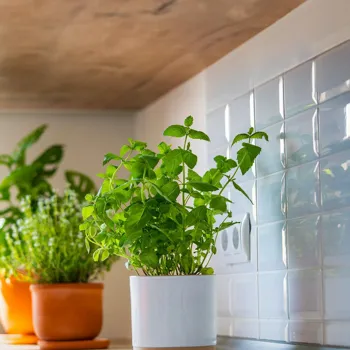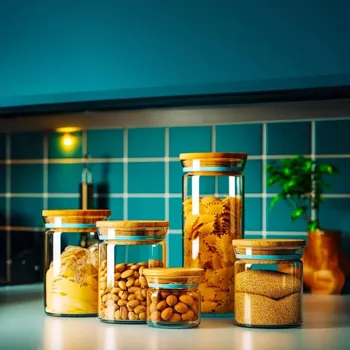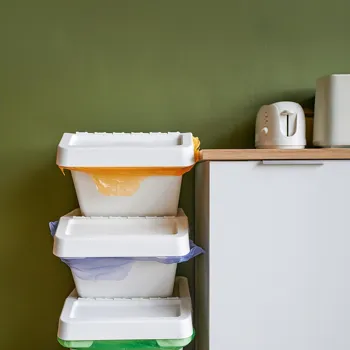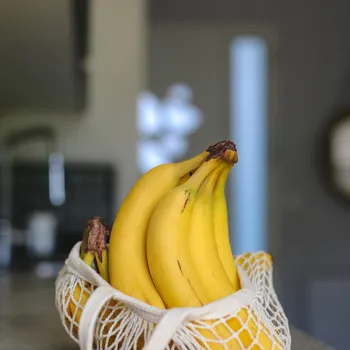Discover how to create a sustainable kitchen in 7 easy steps. Reduce waste, conserve water, and save money. Read more!
Namaste, readers! Are you tired of feeling guilty every time you throw away food scraps
or use excessive plastic in your kitchen? Well, fret no more!

Creating a sustainable kitchen is easier than you think, and it's a fantastic way to reduce your environmental footprint right from the heart of your home. Plus, it's good for your wallet too! Let's dive into seven practical steps you can take to make your kitchen a haven of eco-friendliness.
Reduce food waste by planning meals, proper storage
First things first, let's talk about reducing food waste. In India, we often see so much food being thrown away at weddings and parties, it’s quite disheartening. But it's not just large events, even in our homes, we end up wasting a significant amount of food.

Start by planning your meals carefully. Before you head to the market, take stock of what you already have in your fridge and pantry. Make a list based on the meals you intend to cook for the week and stick to it.
This avoids impulse buys that often end up going bad before you get a chance to use them. Another key part is properly storing your food. Use airtight containers to keep things fresh for longer.
Learn the best ways to store different fruits and vegetables – some thrive in the refrigerator, while others prefer room temperature.
Composting turns food waste into garden fertilizer
Now, let’s discuss about composting. Don’t throw away those vegetable peels, fruit cores, and coffee grounds! Invest in a compost bin or start a backyard compost pile. Composting transforms your food waste into nutrient-rich soil that you can use in your garden.

Not only does this reduce the amount of waste going to landfills, but it also provides you with free, natural fertilizer for your plants. There are various composting methods you can explore, from simple backyard piles to indoor composting systems that are ideal for apartment living.
Online tutorials and local gardening groups can provide valuable guidance on getting started and troubleshooting any challenges you might encounter. It is an investment in your future and the planet.
Switch to reusable options to reduce plastic waste and save money
Next up is opting for reusable alternatives to single-use plastics. Ditch the plastic wrap, plastic bags, and disposable containers. Instead, switch to reusable beeswax wraps, silicone food storage bags, and glass containers. Carry your own reusable shopping bags when you go grocery shopping.

It is a very simple practice that makes a big difference. When buying fruits and vegetables, avoid the pre-packaged options and opt for loose produce that you can put in your own reusable produce bags. These small changes not only reduce plastic waste but can also save you money in the long run.
Think about how many plastic bags you use each week – it quickly adds up!
Conserve water in the kitchen to save resources and money
Conserving water is another crucial aspect of a sustainable kitchen. Start with fixing any leaky faucets or pipes promptly. Even a small drip can waste a significant amount of water over time. When washing dishes, avoid letting the water run unnecessarily.

Fill up the sink instead and wash dishes in batches. If you have a dishwasher, run it only when it’s full and use the eco-friendly setting. Encourage everyone in your family to be mindful of their water usage in the kitchen.
This not only conserves a precious resource but also helps reduce your water bill. Water is a gift, not to waste.
Eco-friendly cleaning promotes health and sustainability
Let's shed light for eco-friendly cleaning products. Many conventional cleaning products contain harsh chemicals that are harmful to the environment and potentially to your health. Switch to eco-friendly alternatives made with natural ingredients.

You can even make your own cleaning solutions using ingredients like vinegar, baking soda, and lemon juice. These homemade cleaners are effective, affordable, and safe for your family and the planet. Moreover, consider using reusable cleaning cloths and sponges instead of paper towels.
Ditch the harsh chemicals and embrace a natural approach to cleaning your kitchen.
Buying local, seasonal produce benefits health, environment, and local economy
Lastly, buying local and seasonal produce is a wise idea for your health and environment. When you choose to buy local and seasonal produce, you're reducing the carbon footprint associated with transporting food over long distances. It also supports local farmers and the local economy.

In addition, seasonal produce tends to be fresher and tastier because it's harvested at its peak ripeness. Visit local farmer's markets or join a community-supported agriculture (CSA) program to access fresh, seasonal produce directly from farmers.
Not only will your taste buds thank you, but you'll also be contributing to a more sustainable food system.
AI Generated Content. Glance/InMobi shall have no liability for the content












